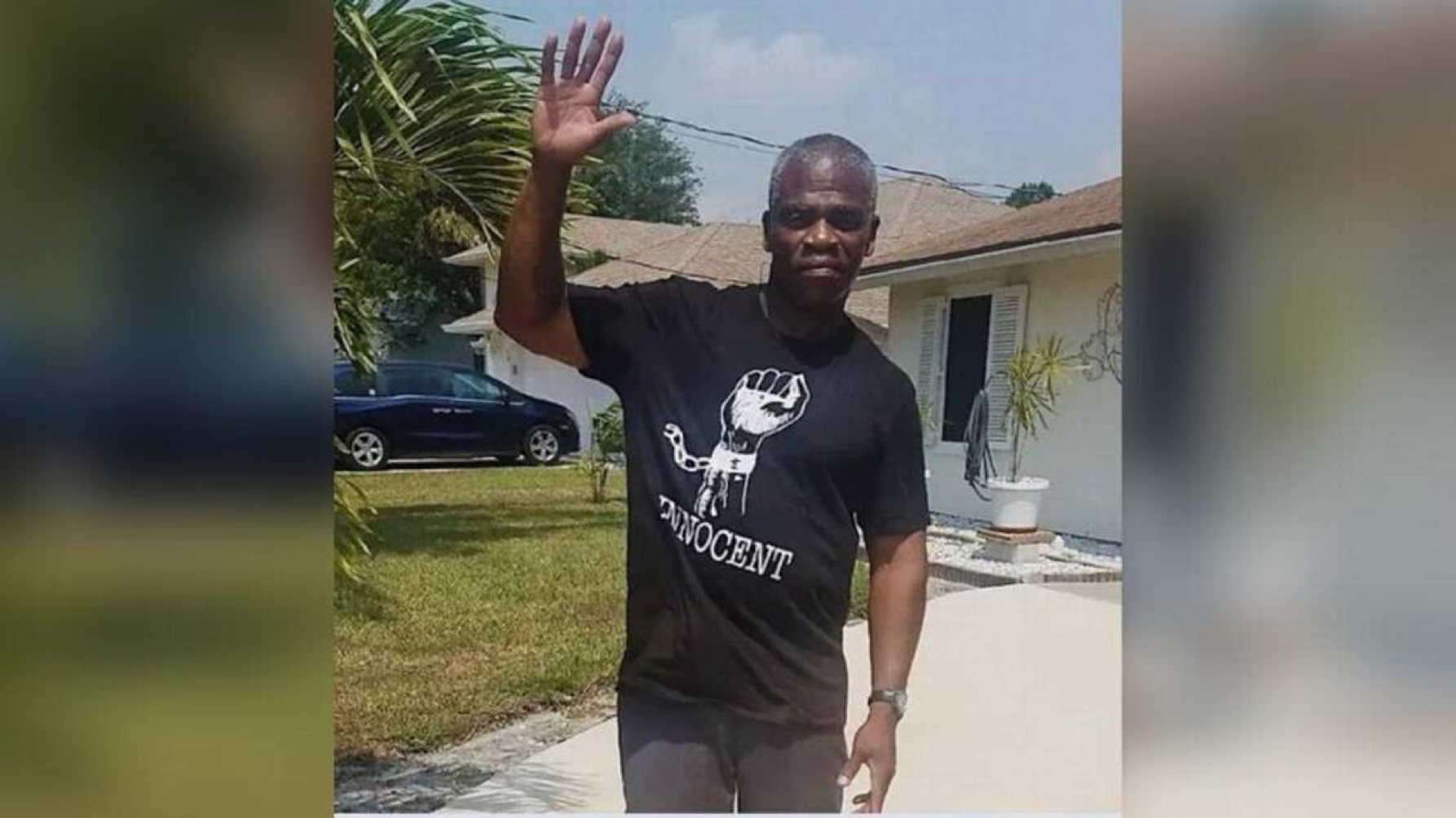An exonerated man who spent over 16 years behind bars after being wrongfully convicted of a violent crime in Broward County was shot and killed by a Georgia deputy during a traffic stop Monday morning, authorities said.
Leonard Allan Cure, 53, was the first person to be exonerated by the Conviction Review Unit of the Broward State Attorney’s Office. Now, he’s being mourned by those who helped him get out of prison.
Broward State Attorney Harold F. Pryor said Monday in a statement he was devastated after hearing the news.
“The Leonard we knew was a smart, funny and kind person,” Pryor said. “After he was freed and exonerated by our office, he visited prosecutors at our office and participated in training to help our staff do their jobs in the fairest and most thorough way possible.”
At about 7:30 a.m., a Camden County deputy stopped Cure as he was driving on Interstate 95, the Georgia Bureau of Investigation said in a statement. Cure complied with the officer’s commands, including getting out of the car, the Georgia state agency noted, until police told him he was under arrest.
“After not complying with the deputy’s requests, the deputy tased Cure,” the GBI said.
Police say Cure then “assaulted” the deputy, who subsequently “used the Taser for a second time and an ASP baton.”
“However, Cure still did not comply,” the GBI said. “The deputy pulled out his gun and shot Cure.”
According to the Georgia state agency, paramedics treated Cure, but he later died.
In a Tuesday email, GBI Special Agent Stacy Carson told the Miami Herald that “Cure was pulled over and placed under arrest for reckless driving and speeding.”
“There is video footage but it is not being released at this time,” she said.
Pryor said Cure was working toward buying a house and going to college, something that he will never get to do.
“He had been working a job in security, he was hoping to go to college and wanted to work in broadcast radio production, he was buying his first home,” Pryor said.
Innocence Project of Florida Executive Director Seth Miller, whose organization collaborated with the Conviction Review Unit to get justice for Cure, said his team is also devastated.
“The Innocence Project of Florida mourns Lenny’s loss,” Miller said in statement late Monday night. “We will do all we can to support Lenny’s family and all who knew him and loved him.”
According to Miller, Cure had visited his mother in South Florida and was driving to his home outside of Atlanta when he was detained, shot and killed by a deputy.
A wrongful conviction
Cure was arrested in November 2003 for the robbery of a Walgreens drug store in Dania Beach. As a result, he was convicted of armed robbery with a firearm and aggravated assault with a gun the following year. Cure, who was in his 30s at the time, got sentenced to life imprisonment — spending more than 16 years incarcerated.
“At the time of his arrest, Lenny had a job and close family members, including his mother and brother,” Miller said.
Broward’s Conviction Review Unit, founded in 2019 to give additional oversight to cases that warrant a second look, issued a 14-page memorandum in April 2020 recommending the modification of Cure’s sentence to allow for his immediate release from prison as they investigated further. After a few weeks, the Circuit Court for the 17th Judicial Circuit modified Cure’s sentence to time served. He was released soon after.
“During this collaborative reinvestigation, the CRU determined that documentary evidence, in the form of an ATM receipt, proved that Lenny was miles away from the crime scene at the time of the robbery,” Miller said. “The reinvestigation also concluded that a photo array shown to one of the victims contained multiple photos of Lenny and was therefore an unreliable, suggestive identification procedure.”
In October 2020, the review unit concluded the case against Cure “is so weak that it gives rise to a reasonable doubt as to his culpability — and that he’s most likely innocent.” And in December of that same year, the court vacated Cure’s judgment and sentence.
He was officially exonerated days later. In June of this year, Florida Gov. Ron DeSantis signed a claims bill granting Cure $817,000 in compensation for his wrongful conviction.
After his exoneration, Cure reconnected with his family and started a new life in Georgia, according to Miller. Cure had held down a steady job since his exoneration and was in the process of buying a home of his own after receiving compensation.
“Sadly, his life was tragically cut short today,” Miller said.




